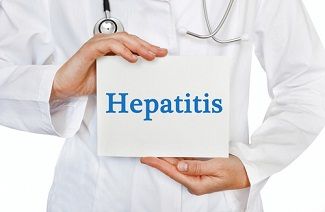Hepatitis A is a highly contagious liver infection that can be spread from person-to-person even before they feel symptoms.

Last week, The Los Angeles County Department of Public Health announced 5 cases of hepatitis A (HAV) amongst people experiencing homelessness and another, unrelated case of a grocery store employee. Public health officials continue to monitor for and immediately investigate suspect hepatitis A cases.1
City officials are working closely with health care providers to request that they remain vigilant for hepatitis A, and public health is also working with organizations that serve people experiencing homelessness to educate the community about the increase in hepatitis A, encourage people with symptoms of hepatitis A to seek medical care, and to protect themselves by getting vaccinated. Individuals that are unhoused are at higher risk for contracting hepatitis A infection because they often have limited access to handwashing and toileting facilities.1
Separately, public health officials are investigating a report of hepatitis A virus infection in an employee of Whole Foods Market in Beverly Hills (239 N. Crescent Drive, Beverly Hills, CA 90210).2 Based on the employee’s job duties and symptoms while at work, Public Health is recommending that anyone who purchased products from the seafood counter section of the store between April 20 and May 13 receive hepatitis A vaccine if they are not already immune. People who have not received the hepatitis A vaccine or had a previous hepatitis A infection may not be protected from the virus.2
Hepatitis A is a highly contagious liver infection that can be spread from person-to-person even before they feel sick. The infection is caused by the hepatitis A virus, which is found in the stool and blood of people who are infected. HAV usually spreads when a person unknowingly ingests the virus from objects, food, or drinks contaminated by small, undetected amounts of stool from an infected person.1,2
What You Need to Know
The Los Angeles County Department of Public Health reported 5 cases of hepatitis A among people experiencing homelessness.
City officials are working closely with healthcare providers and organizations serving the homeless to educate the community about the outbreak.
Separately, a hepatitis A case was identified in an employee at Whole Foods Market in Beverly Hills.
Hepatitis A Prevention
There is no treatment for hepatitis A and prevention through vaccination is recommended. In LA, to combat the outbreak, the public health department is offering free vaccines to people experiencing homelessness in encampments and at interim housing sites where there is risk of potential exposure. Additionally, previously unvaccinated people can receive a hepatitis A vaccine soon after exposure to protect against developing the infection.1
The LA public health department says the risk to the general public is low, but recommends everyone take the following actions to help prevent the spread of disease:
- Check if you have been vaccinated for hepatitis A. If you haven’t, contact your medical provider to determine if you should be vaccinated. Vaccination is the best way to prevent hepatitis A.
- Wash your hands with soap and water before eating and preparing food and after using the bathroom.
Hepatitis A Signs and Treatment
According to the Centers for Disease Control and Prevention (CDC), symptoms of hepatitis A can present differently for people. Some people will be asymptomatic, but for those who do have symptoms, they can appear anytime between 2–7 weeks after exposure. While some people can feel sick for as long as 6 months, most symptoms are gone within 2 months.3
Symptoms of hepatitis A can include:
- Dark urine or clay-colored stools
- Diarrhea
- Feeling tired
- Fever
- Joint pain
- Loss of appetite
- Nausea, stomach pain, throwing up3
Unfortunately, there is no treatment for hepatitis A, and it is recommended for those who do have the virus to continue to get proper rest, nutrition, and fluids.
For more information on hepatitis A or locations for vaccination related to the Los Angeles outbreak, individuals can visit publichealth.lacounty.gov